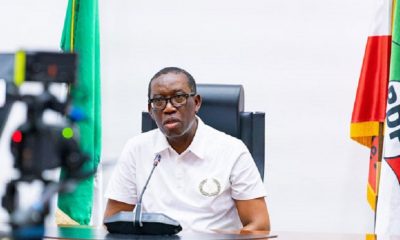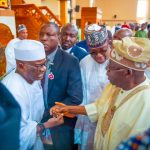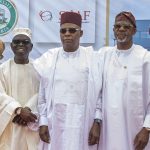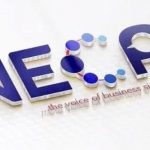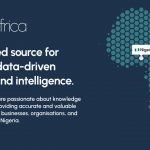Feature/OPED
Gov. Ifeanyi Okowa, His Starch and Banga Soup Preparation for 2019 Elections and the Need to Stop Him Early
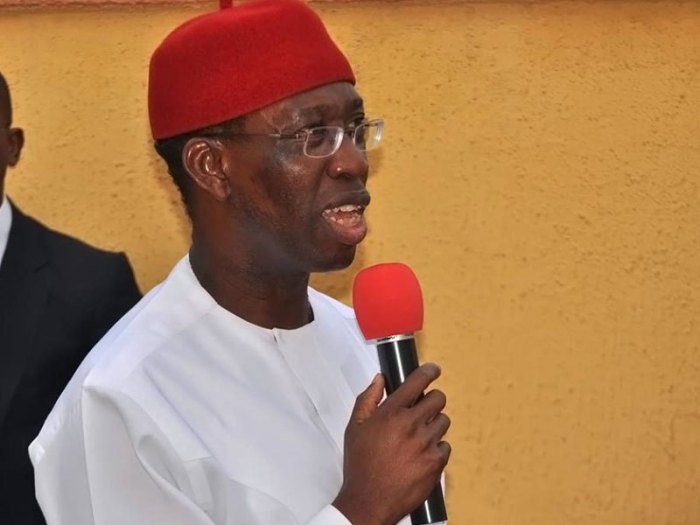
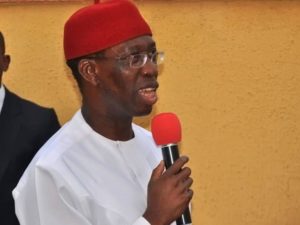
By Fejiro Oliver
Delta State Governor, Mr Ifeanyi Arthur Okowa has not left anyone in doubt that he will not only contest the 2019 February gubernatorial elections, but his body language clearly shows that he is ready to bulldoze his way into our revered Government House the Peoples Democratic Party (PDP) style of 2003-2011.
From all I know, the 1999 elections was not free and fair but it was not as brutal as 2003- to 2011, since most of the political gladiators were new to governance and Ghana Must Go had not been introduced then.
The PDP started their madness of thuggery and rigging in 2003. The 2015 that brought Okowa into power can also be said to be free and fair, since he came in as an underdog, fighting against the then State Governor, Emmanuel Eweta Uduaghan political son in Anthony Chuks Obuh, thus he earned our sympathy and we threw our support for him.
His recent actions and political observation to keen observers betray a man who is ready to go extra mile to be elected again. Is it because he has underperformed? Is it because he has not lived up to expectation like his Rivers State counterpart, Nyesom Wike? We will all get the answers after May 29th 2017.
It is pertinent to know in this write-up from the horse’s mouth that my anti-corruption crusade and ongoing protests against Uduaghan does not have the endorsement of Okowa as many believe.
The former Governor who is a notorious thief and should be stoned to death on the street by Deltans is only looking for whom to blame for his sins and hypertension and thus blaming his successor for nothing he knows nothing of.
Okowa is not only weak to fight corruption but may just be swimming in it as a governor and thus do not have the moral courage to fight Uduaghan.
God forbid that he will even use me against Uduaghan, when he does not know the meaning of loyalty or value friendship. The governor is not only lily livered in fighting corruption but endorsing it, going by the men he has surrounded himself with in office.
In my fight against corruption and politicians, It has always been me against the world; me against them. I have always swam against the marauding tide to get things done right and never sought permission or assistance in whatever guise from politicians to embark on it. My principle is ‘If I perish, I perish’, but because it has always been with good intentions, I have always come out unscathed and even stronger and better when I am blackmailed or maligned by small forces loyal to the gangs of political criminals.
One of the best decisions taken this year by any of his aide is the resignation by Terry Obieh, who was his Special Assistant on Youths and Development.
According to Terry; Okowa is not worth dying for, and I cannot but agree. This is why I find it amazing that people will link my battle to redeem the state from corrupt men, starting from Uduaghan to him, when I know that he does not value people who are loyal to good cause, but instead pull his enemies and antagonists closer; giving them appointments and dishing out our common contracts to them.
He does not only deny you before people but as a governor will also abandon you when you are in problem and yet Deltans believe that he’s one of the best persons to work with or work for. Only those who have been with him as a Senator and those who dealt with him during elections and as a governor he aligns with, while ignoring and even saying bad of those who risked their lives when no one believed in him as a governor and even after swearing in.
To Okowa, James Ibori made him governor from his London prison. To Okowa, our votes are useless like the ‘P’ in Psychology. In his thinking, we are tools to be used to get to the top, and once there; he kicks the ladders through which he climbs, glorifying in his vain power that was made possible by ballot and not bullet. He knows no friend and followers while he feasts. Those who believed he never listened to side talk must begin to have a change of who the man Okowa truly is. He does not only listen to it, but act on them. He now loves sycophancy and encourages; the very Achilles heel of all great men.
Whatever his now powerful contractor who has suddenly become the State Julius Berger, importer and exporter of Government vehicles, Lawrence Oshiegbu tells him is true. It doesn’t matter if they are all lies, he just acts on them. The case of Oshiegbu is not only a pathetic case to our state that has produced great men, but a slap on Deltans that a man who is not in government determines for us what the governor we elected and supported should do. Oshiegbu dirty files need to be visited by the Economic and Financial Crimes Commission (EFCC), and it’s only a matter of time before it will happen. He can place a million dollar bet on this!
The return of Ibori has emboldened Okowa to believe that 2019 will be a walk over for him. How wrong he is! The Delta State that Ibori left behind is no longer the same Delta State that he has come back to meet. The bread and akara politics they played is no longer what we as a people are used to. We are not just refined politically but ready to take our destinies in our hands and kick out any oppressive government that empowers only friends and families above the interest of the state. His only preparation for 2019 is Ibori, Ibori and Ibori and if you know what that means, you will begin to look for your voter’s card to do the needful.
The sudden ego of Okowa that with Ibori’s arrival, Delta Central will be an easy ride to capture is a dream he should begin to wake up from, as Urhobos cannot and never be decided to by a group of cabal who decides who get what. If Okowa is banking on Ibori to deliver Delta Central for him, then it’s a dream in futility as only his works can deliver him. For a state that the wealth should be centralized but he has chosen to Ikanized to his Oshiegbu and Company Ltd, we are also more than ready to pay him back in his own coins.
His only fortune is that the very useless Delta All Progressive Congress (APC), led by Otega Emerhor with all their good fortune has not been able to decimate the Okowa led government with all its obvious and hidden error. With all the money in their disposal, they are yet to have a ferocious media team like its Rivers, Akwa Ibom. Ekiti and Cross River States counterpart. For a party that claims to be opposition but cannot bring a government that has nearly failed the electorates but empowered the Lawrence Oshiegbu gangsters to its knee; it is worrisome. Okowa as a governor has been allowed to still rule the media space, even though it’s glaring to the blind that this is a cosmetic government of the more you look, the less you see.
Make no mistake about it, 2017 to 2019 will not only be a hot year for these unofficial Okowa halleluyah politicians like Ross Oredi and Oshiegbu but a time that they will explain to the EFCC their sudden wealth in less than two years of being close to their Ika Governor.
Okowa aka ‘Ego aria’ governor should brace up for the political battle of his life, as we cannot allow him to play the local game of ten ten and ludo with our lives again, like he did in 2014 to 2015. Aides who are bold enough like Terry should start throwing in the towel by resigning and bidding goodbye to a man that does not value their loyalty but the side talks and petty gossip from his numerous sycophants and political hanger on. To Okowa, loyalty is a word now alien to him. To him, loyalty should probably be shown by drips of blood, and the aides may just be ready to be slaves for years before he can appreciate their works. My one kobo advise to them is Mark Twain’s word that “Loyalty to country always; Loyalty to government, when it deserves it.” This government from every look of thing does not deserve such uncommon loyalty.
For anyone who still have hope that Okowa is the messiah we have waited for, it is time to ask him “are you the one or should we wait for another”. After May 29th 2017, I will make the answer known from my own unbiased perspective of his person since he ascended the throne. There is no law that states that a governor must rule for two terms. When we cross the official two years in office, Deltans and not endorsement by same musketeers will determine the destiny of Deltans and collectively chose their governor. It will be the moment of political revolution in line with Richelle Mead statement that “The greatest and most powerful revolutions often start very quietly, hidden in the shadows. Remember that.”
These little things matter…
Fejiro Oliver, an Investigative Journalist, Media Consultant and Human Rights Activist is also the Co-Convener of Coalition of Human Rights Defender (CHORD) and can be reached on +2348022050733 (SMS ONLY) or secretsreporters@gmail.com. Engage him on twitter on @fejirooliver86.
Disclaimer: Views expressed in this article are solely the writer’s and do not represent Business Post Nigeria
Feature/OPED
How Nigerian Businesses Can Leverage Agentic AI for Growth and Efficiency
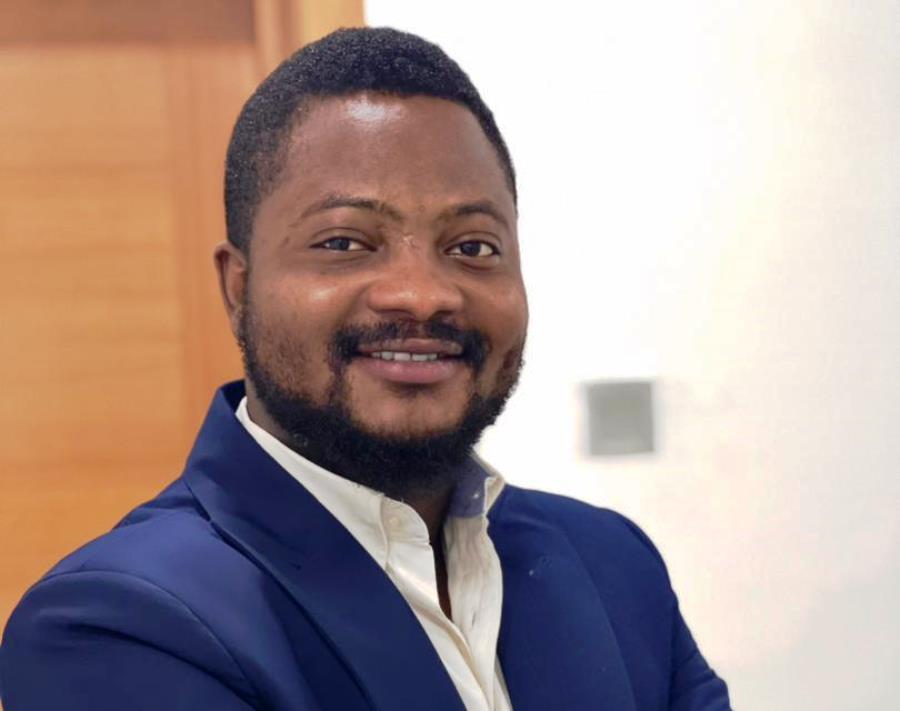
By Kehinde Ogundare
Artificial Intelligence (AI) is revolutionising industries globally, and Nigeria is no exception to this trend. Businesses in Nigeria are increasingly exploring AI-driven automation to enhance efficiency, drive innovation, and remain competitive. However, AI adoption remains relatively low, as many businesses struggle to identify practical use cases that deliver measurable ROI.
A key emerging trend addressing this challenge is Agentic AI–a more advanced form of AI that enables businesses to create autonomous digital agents capable of handling complex tasks, optimising workflows, and improving decision-making. Unlike traditional AI models that react to user inputs, Agentic AI proactively learns, makes decisions, and automates entire processes, making it a game-changer for businesses looking to scale productivity.
The Rise of Agentic AI in Business
Globally, AI adoption has grown, but many businesses still hesitate due to concerns over cost, implementation complexity, and lack of clear ROI. According to McKinsey & Company, organisations that have successfully integrated AI-driven automation report efficiency improvements ranging from 20–30%. The key to unlocking AI’s full potential lies in specialised AI models designed for specific business functions–precisely where Agentic AI excels.
For example, in customer service, AI-powered agents can automate repetitive tasks, resolve issues faster, and enhance customer satisfaction. Studies have shown that nearly 88% of Nigerian consumers consider customer experience critical to their purchasing decisions. Agentic AI can help businesses meet these expectations by providing instant, personalised support.
In sales, AI-driven Sales Development Representative (SDR) Agent can analyse customer interactions, identify sales opportunities, and suggest targeted outreach strategies. Research highlights that businesses using AI in sales automation experience increase conversion rates and higher sales productivity.
Similarly, Human Resources (HR) operations are being transformed by AI-powered automation. Tasks such as leave management, employee onboarding, and performance tracking can be effectively handled by Agentic AI, allowing HR professionals to focus on strategic employment engagement. Deloitte indicates that AI-powered HR automation reduces administrative workload significantly, enhancing employee satisfaction and operational efficiency.
In IT operations, AI-powered Help Desk Agents streamline troubleshooting, diagnose issues, and execute quick fixes. This reduces downtime and significantly improves operational continuity and productivity.
How Zoho is Innovating with Agentic AI
At Zoho, we recognise the potential of Agentic AI and have developed Zia Agents for specific use cases within various products. Unlike generic AI models, Zia Agents provide contextual intelligence, real-time decision-making, and deep business-specific insights. Additionally, Zoho ensures that Zia agents operate within a secure infrastructure, fully compliant with various global privacy regulations, making it a trusted solution for businesses handling sensitive data.
We have also launched Agent Studio, an AI-powered platform that enables our customers, partners, and independent developers to create specialised agents for their specific needs. These can be hosted on Agent Marketplace, where they can be monetised. Nigerian businesses can utilise Agent Studio to build hyperlocal agents for various industries.
The Future of Business with Agentic AI
The shift towards Agentic AI is inevitable as businesses increasingly seek smarter, more autonomous systems to drive efficiency and growth. Organisations that embrace AI-driven today will be better positioned to compete in Nigeria’s evolving digital economy.
For Nigerian businesses looking to scale efficiently, Agentic AI offers a practical and results driven approach to automation. By leveraging Zoho’s Zia Agents, companies can achieve higher productivity, ensuring long-term success in a competitive marketplace.
Kehinde Ogundare is the Country Head for Zoho Nigeria
Feature/OPED
If Data is the New Oil, Where is the Refinery?
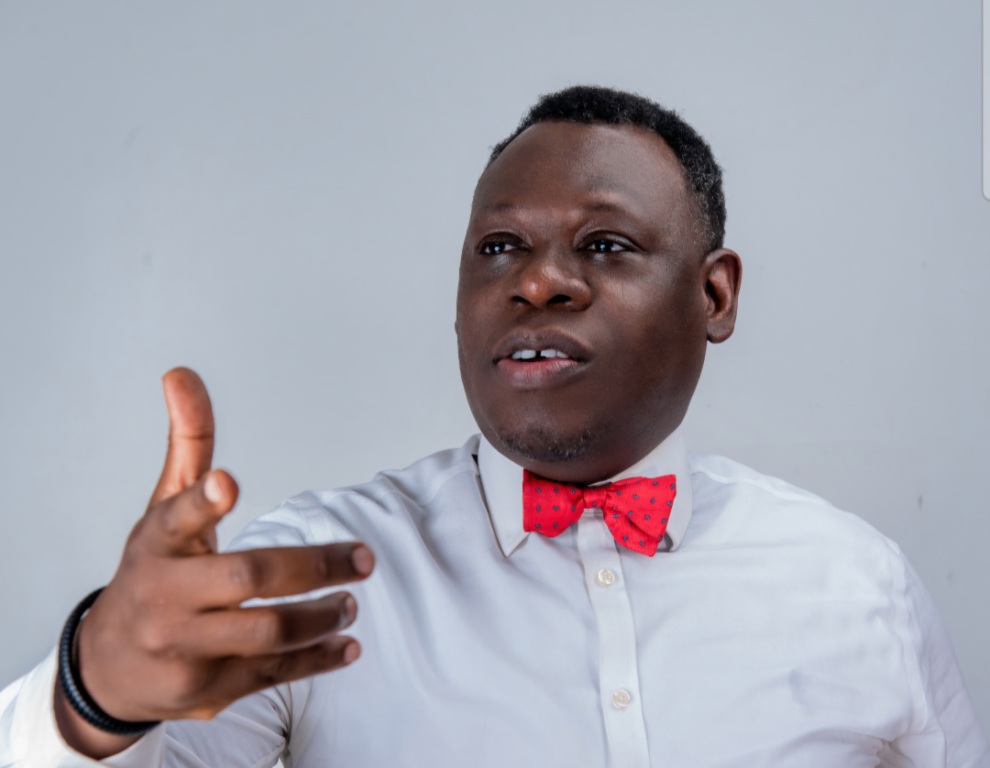
By Timi Olubiyi, PhD
Internet users are growing at an unprecedented rate, and in Nigeria, for instance, internet users have expressed concerns and frustration over the data price increase in recent times, with many feeling its negative impact on their budgets and mobile smartphone usage.
Major networks such as MTN, Airtel, and Glo have seen a close to 50 per cent increase in Nigerian mobile data prices, with no known alternative available. This shows the significance of data and internet usage, highlighting its role in the digital age and the rapid growth of data and content creation across Africa.
From mobile phone data and e-commerce activities to social media interactions and government services, vast amounts of information are being created daily, which is accessible through internet usage.
The economic and technological landscape of Africa has been undergoing significant evolution recently. The continent is inhabited by over 1.4 billion individuals, and a larger portion of them create, use, and feed on data— which is a digital transformation.
The convergence of rising mobile phone usage, enhanced internet accessibility, and a youthful, technologically adept demographic has positioned Africa at the forefront of global discussions around technology innovation and data generation.
Recently, the phrase “data is the new oil” has gained significant traction in discussions related to technology, business, and the digital economy. But it is public knowledge that when it comes to oil, its availability is limited to certain areas of the world.
On the other hand, tech giants like Google, Facebook, Netflix, Amazon, Microsoft, and Apple control most of the world’s data.
According to a study by Sandvine in 2021, these companies are responsible for about 57 per cent of global data flow, and they have all commodified data. The huge amount of data controlled by these mega-companies is bigger than most small businesses and corporations. But, anyway, this would be another story piece for another time.
In the view of the author, if we want to know if data is really the “new oil”, we need to first look at how it builds value. Data by itself is not useful, just like in the case of oil. Raw data, without any processing or analysis, is merely a collection of information that requires interpretation.
For instance, an online store might keep track of what customers do, like what links they click on, how long they stay on product pages, and what they bought in the past.
However, this data remains mostly useless until it undergoes processing, analysis, and transformation into actionable ideas. Business managers in Africa should follow this path and should adhere to a mindset of ‘facts superiority over opinion’.
As businesses expand, an increasing number of individuals express ideas regarding the actions to be undertaken. However, it is beneficial to employ a data-insight mentality. All company metrics can be tested, measured and improved upon.
It is important to note that business owners/managers must have real-time access to the most important data in their business. Understanding which Key Performance Indicators (KPIs) affect revenue and profit is significantly more crucial than the revenue and profit figures themselves.
When data is cleaned up and analysed, it becomes really useful. Similar to refining oil to produce petrol, diesel, and other products, processing data yields beneficial outcomes. This is where Google and Facebook shine. They have put a lot of money into technologies like machine learning and big data analytics that can turn huge amounts of raw data into personalised ads, recommendation engines, and models that can predict the future. In this way, they make money for both their users and their owners.
In Africa, the idea of “data as the new oil” is particularly appealing because it could help the continent skip ahead in the normal stages of economic growth. Mobile phones let African countries get around the need for landline infrastructure.
Similarly, data technologies could help African economies get past older, resource-heavy ways of growing, leading to new ideas and long-term growth in fresh ways. In agriculture, for instance, data analytics and satellite imaging can help farmers figure out how the weather will behave, get the most out of their crops, and make harvest supply lines work better. Data-driven solutions in healthcare, like electronic health records (EHRs) and predictive analytics, can help find diseases, control outbreaks, and make healthcare better.
In the same way, data-driven education platforms can give students personalised learning experiences and give teachers and managers useful information about how students are doing and what they need. More so, businesses could be data-driven by setting up special internal research units on data, where insights can be generated to improve on decision-making.
Looking ahead, there are evident similarities between data and oil; much like crude oil, data is valuable. Data is not a naturally occurring resource like oil; it is a by-product of human activity. Oil is a limited resource, whereas data is plentiful and perpetually increasing. Raw data must be processed and analysed to derive significant insights and facilitate informed decision-making.
This is where artificial intelligence (AI) is relevant. AI acts as the ultimate data refinery, enabling the conversion of extensive information into meaningful insights. In contrast to oil, which is extracted and processed by a limited number of firms, data is more extensively disseminated, including various stakeholders in its collection, analysis, and utilisation.
Anticipating the future, data will probably witness ongoing advancements in many domains because it is a strategic asset for business and economic growth. With it, people, organisations, and governments can make better decisions. Good luck!
How may you obtain advice or further information on the article?
Dr Timi Olubiyi is an entrepreneurship and business management expert with a PhD in Business Administration from Babcock University, Nigeria. He is a prolific investment coach, author, seasoned scholar, chartered member of the Chartered Institute for Securities and Investment (CISI), and a Securities and Exchange Commission (SEC)-registered capital market operator. He can be reached on the Twitter handle @drtimiolubiyi and via email: drtimiolubiyi@gmail.com, for any questions, reactions, and comments.
The opinions expressed in this article are those of the author, Dr Timi Olubiyi, and do not necessarily reflect the opinions of others.
Feature/OPED
Why President Bola Tinubu Has the Edge in Retaining Power in 2027
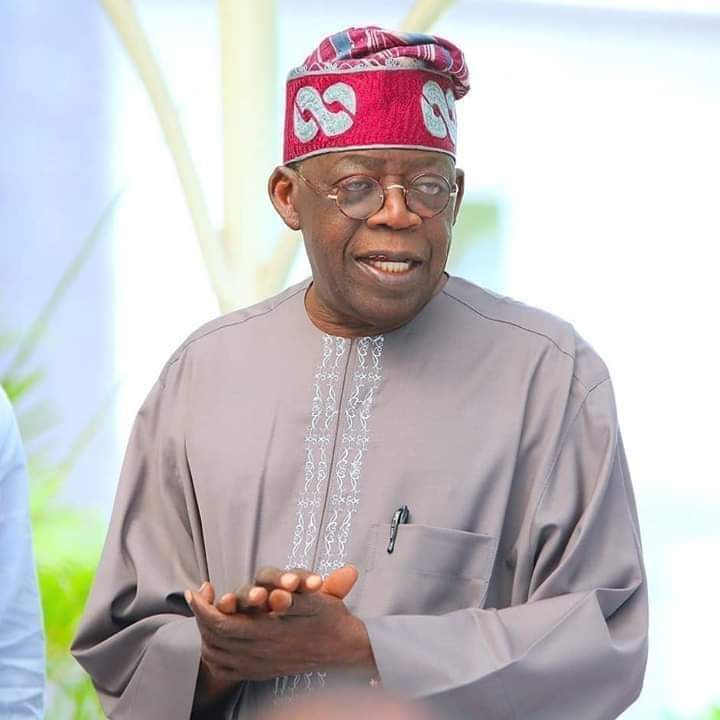
By Kenechukwu Aguolu
As the year 2027 draws closer, political manoeuvrings and calculations are already underway across Nigeria. The landscape is expected to shift, with new alliances and coalitions forming among political actors and parties. However, in my view, the chances of the current administration retaining power in 2027 remain high, and several compelling reasons support this assertion.
First and foremost, the All Progressives Congress (APC), the party currently in power, stands as the most formidable political force in the country. The APC boasts an unrivalled structure, a stable leadership, and the highest membership among all political parties. With the largest number of serving governors and National Assembly members, the party is firmly entrenched in all corners of the nation. These factors alone give the APC a significant advantage as it gears up for the 2027 presidential elections.
Under the leadership of President Bola Tinubu, the current administration has displayed a deep sense of patriotism and a clear vision for Nigeria’s future. While the reforms introduced by the government came with initial challenges, these difficulties are gradually easing, and the results are becoming increasingly evident. Prices of goods and services are steadily dropping, and the Naira is beginning to show signs of recovery.
The government’s efforts to diversify the economy are also bearing fruit, with initiatives such as the revival of the Ajaokuta Steel Company and ongoing reforms in the mining sector. By 2027, the dividends of these economic reforms will be more apparent, and the public will be able to feel their positive impact. These successes will work in the administration’s favour and could solidify the APC’s hold on power.
Infrastructure and security have been at the forefront of the government’s priorities. Significant improvements in power generation have already been made, and efforts to tackle insecurity have begun to show positive results, albeit gradually. Furthermore, the government is investing heavily in road construction, including vital projects like the Lagos-Calabar Expressway.
These infrastructural developments are not just for show—they will stimulate economic activities across the country, create jobs, and enhance the living standards of Nigerians. If these trends continue, it will be hard for any political opponent to deny the progress made under the current administration.
Perhaps the most critical factor in the APC’s favour is the leadership of President Tinubu himself. With his personality, widespread followership, and experience, he stands as a political giant in Nigeria. His leadership has been marked by a strong sense of purpose and determination, and his vast network of supporters spans across different regions of the country.
While some may argue that time will tell who will emerge as a viable challenger to President Tinubu, it’s difficult to imagine any politician currently being touted as a credible candidate who could match his national appeal and charisma. The nature of Nigerian politics means that any potential challenger would need to command significant nationwide support to pose a real threat to the APC’s grip on power.
Looking ahead to the 2027 presidential election, I believe it will be much easier for President Tinubu to secure re-election than it was in 2023. His leadership performance, coupled with the robust support of the APC, places him in a strong position for victory. While unforeseen events may shape the political landscape over the next few years, the factors already in play suggest that the current administration is well-positioned to retain power.
-

 Feature/OPED5 years ago
Feature/OPED5 years agoDavos was Different this year
-
Travel/Tourism9 years ago
Lagos Seals Western Lodge Hotel In Ikorodu
-

 Showbiz2 years ago
Showbiz2 years agoEstranged Lover Releases Videos of Empress Njamah Bathing
-

 Banking7 years ago
Banking7 years agoSort Codes of GTBank Branches in Nigeria
-

 Economy2 years ago
Economy2 years agoSubsidy Removal: CNG at N130 Per Litre Cheaper Than Petrol—IPMAN
-

 Banking2 years ago
Banking2 years agoFirst Bank Announces Planned Downtime
-

 Sports2 years ago
Sports2 years agoHighest Paid Nigerian Footballer – How Much Do Nigerian Footballers Earn
-

 Technology4 years ago
Technology4 years agoHow To Link Your MTN, Airtel, Glo, 9mobile Lines to NIN







